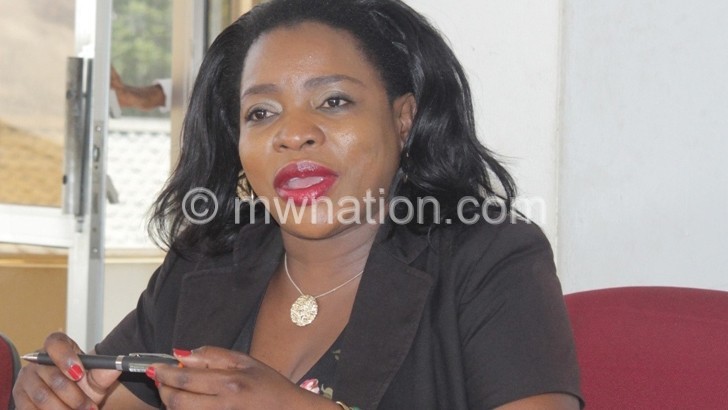Activists say 50:50 representation attainable
Proponents of the 50:50 Campaign are confident that the number of women in politics, notably in Parliament and local government councils, will rise after the May 2019 Tripartite Elections.
Several factors have been highlighted as contributing to low numbers of women in Parliament and local government councils. They include stereo-types and an entrenched culture of male dominance.

During a debate on 50:50 Campaign held at Sunbird Mount Soche on Saturday evening, ActionAid Malawi executive director Grace Malera, who was one of the four panellists, mentioned financial capacity as yet another factor working against women’s progression in politics.
She said: “As you know, in local politics you actually have to invest in campaigns; in wooing people to vote for you, so a lot of women operate from a disadvantaged position economically.”
Records show an upward spiral in terms of female members of Parliament (MPs) since the first post-independence multiparty general elections in 1994. However, the representation has fallen short of levels expected by policy makers and activists.
The representation was at 5.4 percent or 10 female legislators in 1994, rising to nine percent (18) in 1999 then 15 percent (27) in 2004 and later 22.3 percent in 2009 (43). But the figure declined in the 2014 Tripartite Elections to 16.7 percent (32 women).
However, the campaigners are upbeat it will go up again in the upcoming elections.
Other factors hindering equal representation of women and men in political and other leadership positions, according to the campaigners, include socio-cultural norms that inform the decisions of society in terms of who can be a leader and therefore the kind of support that either a man or a woman can get.
There are also issues of stereotypes and prejudices defining the role of women in society, which are not supportive of the notion of women leadership.
Besides Malera, other panellists were Joseph Kazima from the Ministry of Gender, Children, Disability and Social Welfare; social commentator Pastor John Shawa and Women’s Legal Resource Centre (Wolrec) executive director Jane Kathewera-Banda.
In her contribution, Malera emphasised the need to reconstruct the socio-cultural norms, stereotypes and prejudices defining the roles of women in society in order to elevate women to leadership positions.
She said the 50:50 Campaign Management Agency, which her organisation is part of, is working with different players in communities to deconstruct the misconceptions and help people to begin to see a woman as capable and give them the support they require.
Kazima, who agreed with Malera, stated that the ministry is scaling up its efforts to ensure that everyone, including men, is involved in helping women attain leadership positions, adding that President Peter Mutharika is the HeforShe campaign champion.
He said: “Men have a huge role to play in encouraging women in politics. If men could do that, we can be sure of a miracle in this area come May 2019 elections.”
But Shawa, who was critical of the whole campaign, wondered what is suffering with the current status quo where there were few women in Parliament.
He said: “What is it in society that is not working as a result of the low representation of women in Parliament? If we do not find that then it will be pointless for us to support the cause.”
Shawa added that with all the support women are getting, he fears there will soon be an imbalance.
But a calm Malera said Parliament requires people that represent different interests.
She said: “For 32 women to manouvre and to push certain interests as a women’s group for instance, it becomes very difficult. But you can imagine what would happen if that number were doubled. So we are prepared to push towards the 50:50 target, but this is a matter of constitutional obligation. It is a right and it is enshrined in the Constitution.”
Most patrons noted that a lot needs to be done to achieve the equal representation, including introducing the issue of equal roles and representation from primary schools. They also said most importantly, women should believe in themselves.





